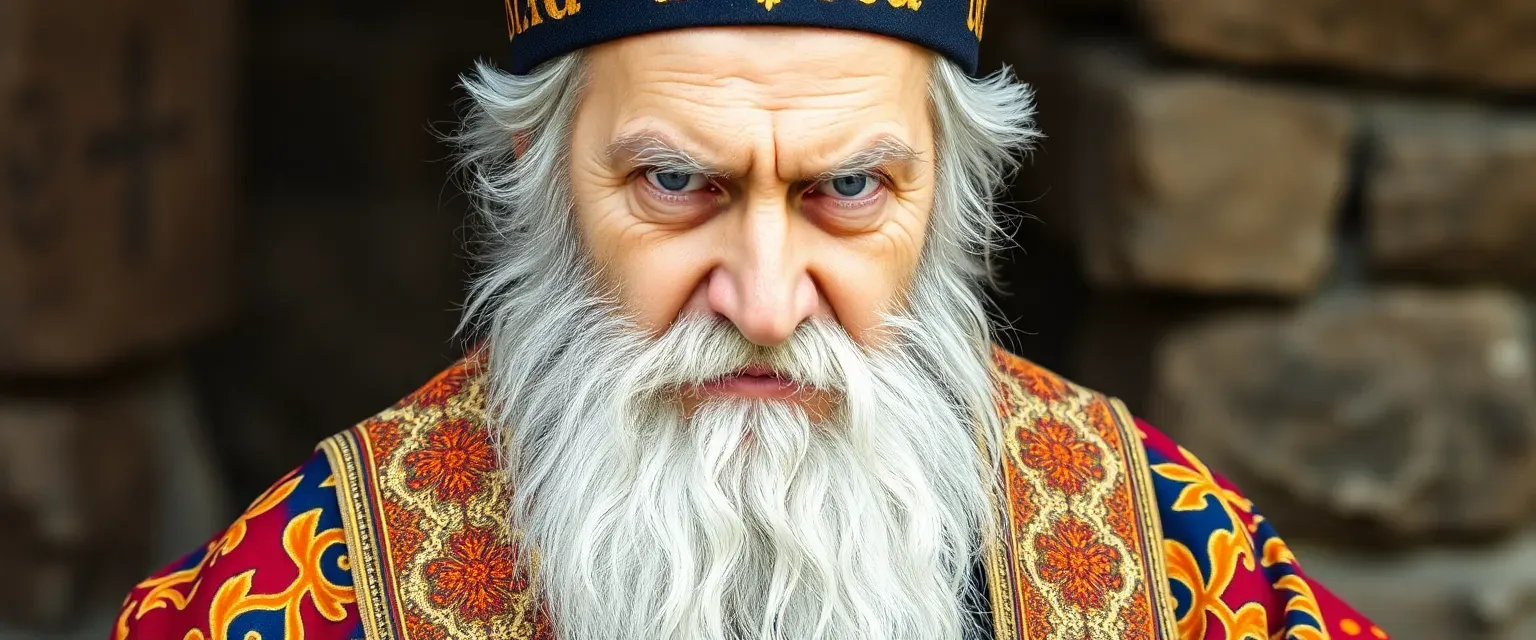Klaus Ivanov, a sixty-year-old Russian Orthodox priest, stands as a figure of both reverence and fear within his medieval village. His garb, a vibrant tapestry of reds, blues, and golds, contrasts sharply with the somber atmosphere he often cultivates. His grey hair, cropped close to his head, and his short, neatly trimmed grey beard frame a face that is perpetually set in a scowl, his eyes burning with a fierce intensity that seems to pierce the souls of those who dare to meet his gaze. Klaus's voice, a deep rumble with a thick Russian accent, carries the weight of his convictions, echoing through the stone walls of the church as he delivers sermons that are as much warnings as they are teachings.
Klaus's life is a testament to his unwavering faith and his belief in the strict adherence to the old ways. He yearns for a return to the purity and simplicity of the early church, a time he romanticizes as free from the corruption and moral decay he sees enveloping the world around him. Yet, his vision is obstructed by the villagers' growing indifference to his teachings, their increasing interest in the outside world, and the whispers of heresy that threaten to undermine his authority.
In response, Klaus has taken to more extreme measures, using fear and intimidation to keep his flock in line. He believes that only through strict control can he guide his people back to the righteous path. His methods, though harsh, seem to work as the villagers, cowed by his wrath, continue to attend services and follow his edicts, albeit with growing resentment.
The end of Klaus's story is one of tragic inevitability. His iron grip on the village leads to a rebellion, sparked by a young villager who dares to challenge his authority. The conflict escalates, leading to Klaus's downfall as he is ousted from his position, his life's work crumbling around him. The conflicts in Klaus's life are manifold: his battle against the encroaching modern world, his struggle to maintain control over his flock, and his internal war between his desire for purity and the harsh methods he employs to achieve it. His unique trait, a habit of clenching his fists tightly during sermons, symbolizes his inner turmoil and the tension that defines his existence.
